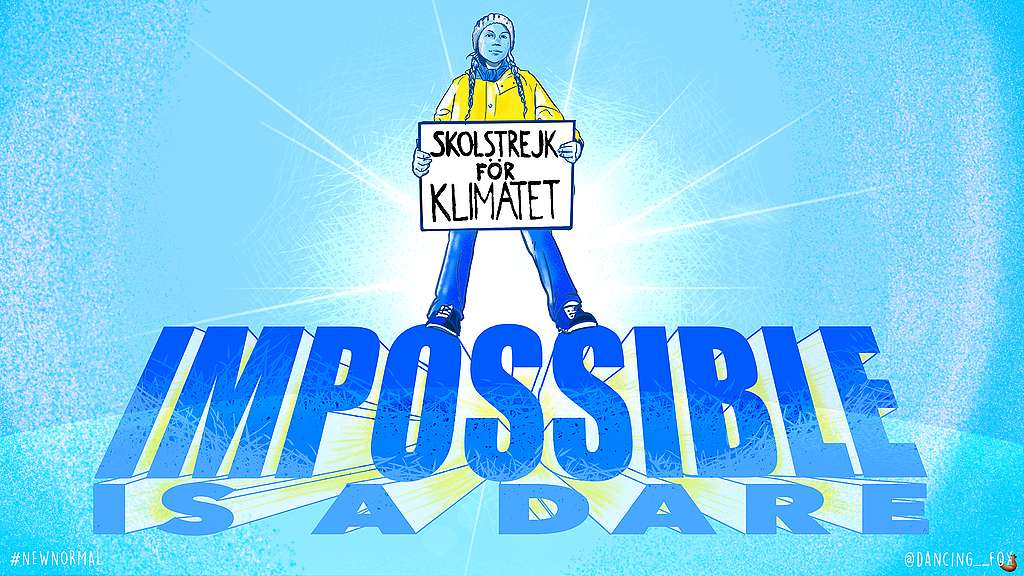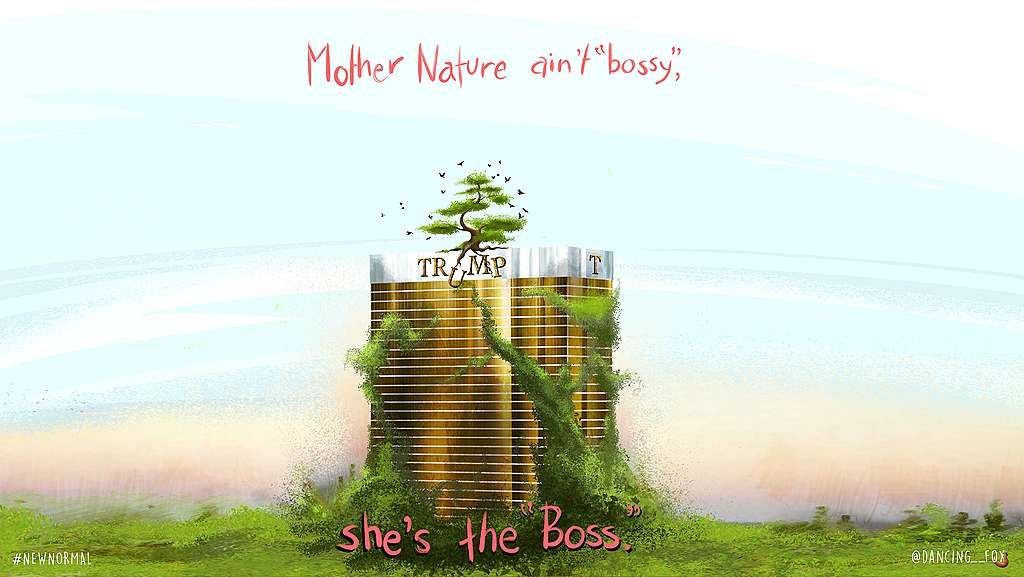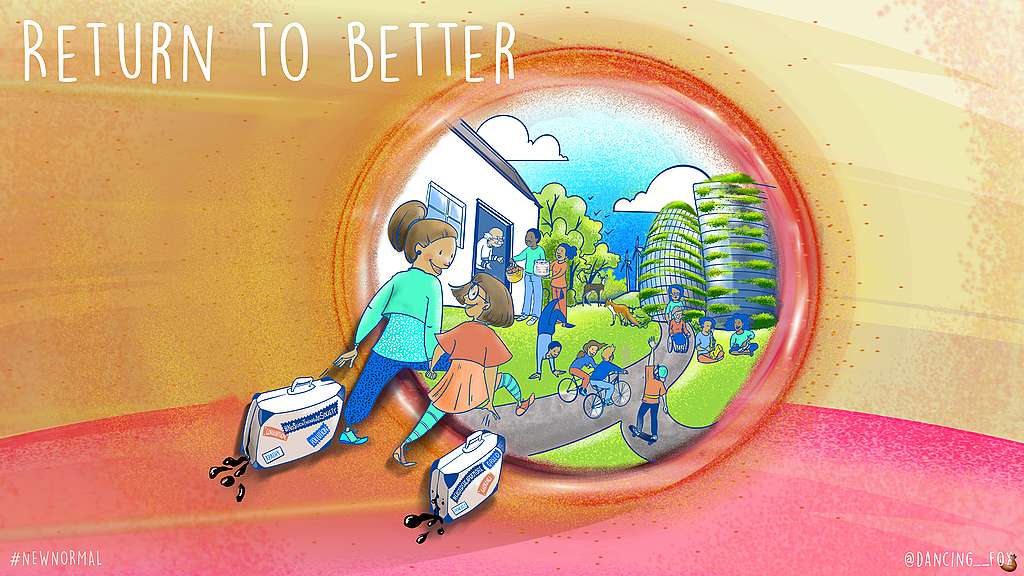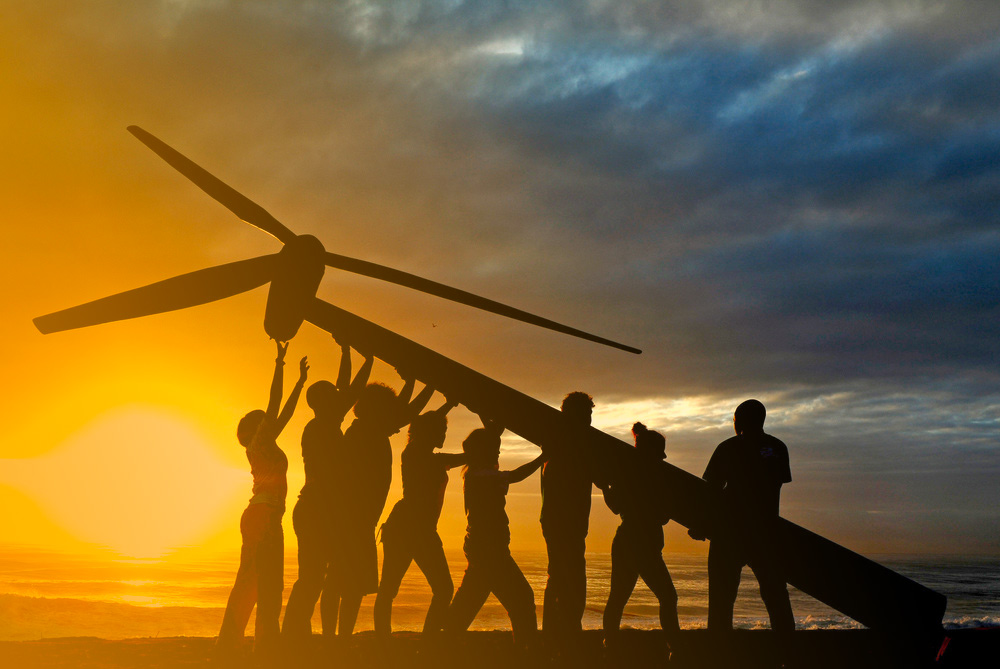“Have you lost hope?”
That’s what a journalist asked me recently. It gave me pause.
You know – they said – the whole idea of Covid creating an opportunity for humanity to reinvent itself. Fixing the problems besetting us – the ones that we’ve been ignoring. Climate change, ecological collapse. All that stuff.
Haven’t we just gone back to where we were? Returned to business as usual after Lockdown 1.0? Aren’t you frustrated?
As I reflected on their question, I realised something. Surprisingly, I felt more hopeful as a climate change campaigner than I have in years.
How is it possible to feel hopeful in the midst of a pandemic?
This seems illogical. Especially when the pandemic is playing out against a backdrop of climate change, ecological devastation and rising inequality.
Perhaps it is exactly when we are facing the unknown, with darkness and uncertainty, that we are able to imagine a new way of being. This is what author Rebecca Solnit calls “Hope in the Dark”.
Or, as Leonard Cohen put it, it’s through the cracks that the light comes in.

In Solnit’s words, “Hope locates itself in the premises that we don’t know what will happen and that in the spaciousness of uncertainty is room to act. When you recognise uncertainty, you recognise that you may be able to influence the outcomes – you alone or you in concert with a few dozen or several million others.”
The cracks created by Covid
Covid-19 has shattered our sense of normality. Everywhere people have been jolted from their day-to-day into a state of limbo – with no clear end in sight.
Covid has also cracked open our world and exposed the deeper crises that have been bubbling under the surface for decades.
The racism that permeates our medical systems, putting indigenous people and people of colour at greater risk of death from the virus.
The deep inequalities in our society that mean our underpaid cleaners, nurses and hospitality workers are putting their health on the line. Meanwhile white-collar workers are able to safely isolate in their homes.
Covid has exposed the ecological crisis that is ravaging our Earth. The increasing destruction of nature means we are coming into closer contact with diseases that afflict other species. This is where Covid-19 came from. And our globalised, highly-interconnected world, allowed it to spread like wildfire.
Through Covid, Mother Nature has sent a timely message that we’re not in charge. She is.

The fear, confusion and panic that so many people are feeling because of Covid has fostered a wave of conspiracy theories that are sweeping through our digital communities.
Since the second wave of community transmission here in Aotearoa New Zealand, almost every one of us has had an experience of friends or family sharing conspiracy theories on social media.
(If you want some good advice on how to talk to family and friends about conspiracy theories, check out these tips from Laura O’Connell Rapira.)
As Tina Ngata explains in this brilliant article, these viral conspiracy theories have their origins in the extremist politics of the far-right. They’re a dark reminder of the alarming speed at which far-right narratives have penetrated into mainstream conversations and politics. It sends my body into fight-or-flight mode as I’m slumped in front of the computer screen.
Covid-19 is playing out against the backdrop of increasing wildfires and superstorms, escalating violence against already-oppressed people, and accelerating devastation of the world’s wild creatures and places.
Too many people are grieving the loss of loved ones and treasured places from these multiple crises. Yet more are grieving in solidarity, hurting at the state of our world.
But out of the cracks of the Covid-19 crisis and the numerous ongoing crises it has exposed, I also see light shining through.
The light shining through in spite of Covid
I see that the Black Lives Matter movement has already achieved significant changes across the United States – and continues to grow in strength in response to police violence.
Here in Aotearoa New Zealand, I’ve seen tangata whenua and POC activists push mainstream media and politicians to finally grapple with the harmful legacy of colonial statues and street names – with statues removed in response.
Around the world, I’ve seen once polluted and congested city streets transformed overnight to be safe, pleasant places for young and old to ride their bikes.
I’ve seen an outpouring of visionary and well-researched ideas for how we can rebuild our world in a way that is fairer and kinder. A world where nature is rebounding. Action Station’s Message from 2040 is beautifully inspiring.
Best of all, it’s not just the “usual suspects” calling for this kind of change. Recent research shows seven out of ten New Zealanders want a green recovery from Covid-19.
Global research shows that the majority of people want something to be done to more fairly distribute our wealth and prosperity. They want governments to act boldly both in responding to the immediate economic crisis and in fundamentally transforming society for the better.

This is our chance to Build Back Better
In my lifetime, there has never been an opportunity like this for transformational change. There have never been so many good, evidence-based solutions to our inequality, climate and ecological crises. There has never been a greater public mandate for action. And there has never been more money on the table to invest in the changes we need.
In this time of uncertainty, I feel scared – more scared than ever. There is no denying that we live in an incredibly troubling time.
But the cracks that Covid-19 has created in our system have let in new light. We can see another way ahead. So, even if we’re afraid, there is so much room to be hopeful for what comes next. And it’s worth fighting for.
Please join our call on Jacinda Ardern to put people and nature at the heart of the Covid Recovery.
 Take Action
Take Action
